
The American Academy of Anti-Aging Medicine (A4M), founded in 1992, held their 32nd annual Longevity Fest last week in Las Vegas. This year featured big names in anti-aging, including David Sinclair, Peter Attia, and Dave Asprey. The exhibit floor included displays by hundreds of companies displaying products that claim to improve health and prevent aging.
This week we’ll review some of the conference information relevant to personal scientists.
Longevity Fest
The under-regulated world of alternative medicine brings on the one hand a potpourri of tantalizing products and services, some of which might well be revolutionary, but that you won’t get from the traditional medical world. On the other hand, the low barriers to entry attract shysters and fraudsters who, whether deliberately or unknowingly, sell products that—at best—are ineffective wastes of money and—worse—might even be dangerous. Professional scientists generally dismiss these products altogether, but personal scientists are more free to consider everything. “There’s no evidence”, say the professionals. But personal scientists ask how will you get the evidence unless somebody tries it?
I put on my open-minded hat and walked the exhibit floor.
Although I’m sure a large percentage (90%?) of the products here are completely useless, there are also some intriguing ideas that may well turn out to be the next Nobel-worthy breakthrough (10%). The trouble is … I don’t know which 10%.
Take the Pharmanex Biophotonic Scanner, for example:
You hold your palm up to their small machine for about 20 seconds and it scans for your “skin cartotenoid content”. The test taker congratulated me on my high score (“most people are a lot lower”), but noted that I’m right at the borderline of where I should be. Fortunately, they sell a bottle of supplements guaranteed to put me over the top or my money back. She recommended the ageLOC® Youth Anti-aging Supplement, which sounds expensive ($150) but—let’s be honest—is an incredible bargain if it actually reverses my aging!
Berkeley Life gave samples of their nitric oxide test strips. It’s simple enough: just spit on it and match the results with their color card. I missed my chance to test it with the supplements they offered: take 2 capsules and visit the booth again to retest in 90 minutes. So I don’t know for sure that it works, but for only $20 it seems like a bargain.
I’ve heard good things about Vibrant Wellness, which sells a bunch of tests of everything from gut microbiome to micronutrients to oxidative stress. One of our readers sent me his results from one of these comprehensive tests ($1400) that in his case revealed a serious problem with “blood acids” that his functional medicine doctor thinks is linked to cancer.
For $300, Snip Nitrigenomics will send you a DNA collection kit and 11 personalized reports. For another $150/month you can get supplements personalized to your DNA type.
Therapeutics
TrueBinding claims their Phase2a trial demonstrates their TB006 monoclonal antibody “potential to reverse Alzheimers” with “improvement of CDR-SB scores”. (Fine print: the improvements had a statistically-insignificant P-value of 0.08)
Get your own “FDA-approved” injectable ascorbic acid (aka Vitamin C shots) from McGuff Pharmaceuticals, but only if you’re a licensed healthcare professional. I wonder how carefully they check their customers; could a random person claim to be an “alternative” practitioner and get the stuff directly?
But why waste time on Vitamin C when you can get Vitamin CBD … Pico IV is a Sacramento-based company that sells $150 intravenous Cannabidiol. The exhibitor I talked to swears by it; one of their employees uses it successfully to treat her Crohns symptoms. There’s no THC, so no you don’t get a psychoactive effect and you’ll pass a drug test.
Regenerative Labs and “connective tissue supplementation”, using Wharton’s jelly, a tissue from umbilical cords. I couldn’t view their website without turning off my ad blocker. Hmmm…
Resbiotic sells the “#1 most innovative probiotic”, whatever that means. Their prebeet “ENERGY* Prebiotic” supposedly boosts GLP-1 for only $45/bottle, which is way cheaper than Ozempic. If it works, that is. (Fine print: tests were performed in cellular culture, not actual people)
Machines
Many vendors showed off their various healthtech devices, most of which are too expensive for personal use, so they’re sold mostly to health spas or wellness clinics.
I wish I’d had time to try the complimentary arterial health assessment offered at the Cardiex booth. They have a suite of simple, non-invasive devices that claim to measure arterial stiffness, an important measure of heart disease risk.
Another diagnostic device I liked is the VO2 Master , a facemask device that measures VO2 max without the complicated hoses required by other devices. Unfortunately, the $6000 price means I won’t be able to get one for home use.
Another face mask device, this time for therapeutic use, is the Mito2 Responsive Oxygen Therapy from Ergo Flex Technologies which looked pretty high tech. Unlike closed hyperbaric chambers (which some people can find claustrophobic), this lets you get Intermittent Hypoxia-Hyperoxia Training (IHHT) in 20 minutes from a basic face mask.
How about “advanced high-frequency magnetic energy to stimulate and strengthen pelvic floor muscles” with the REFIRE-03 from Innergy Development. While you’re at it, consider the “World’s first and only zero point plasma Innergy suite” that includes a negative ion “Rain Chair”.
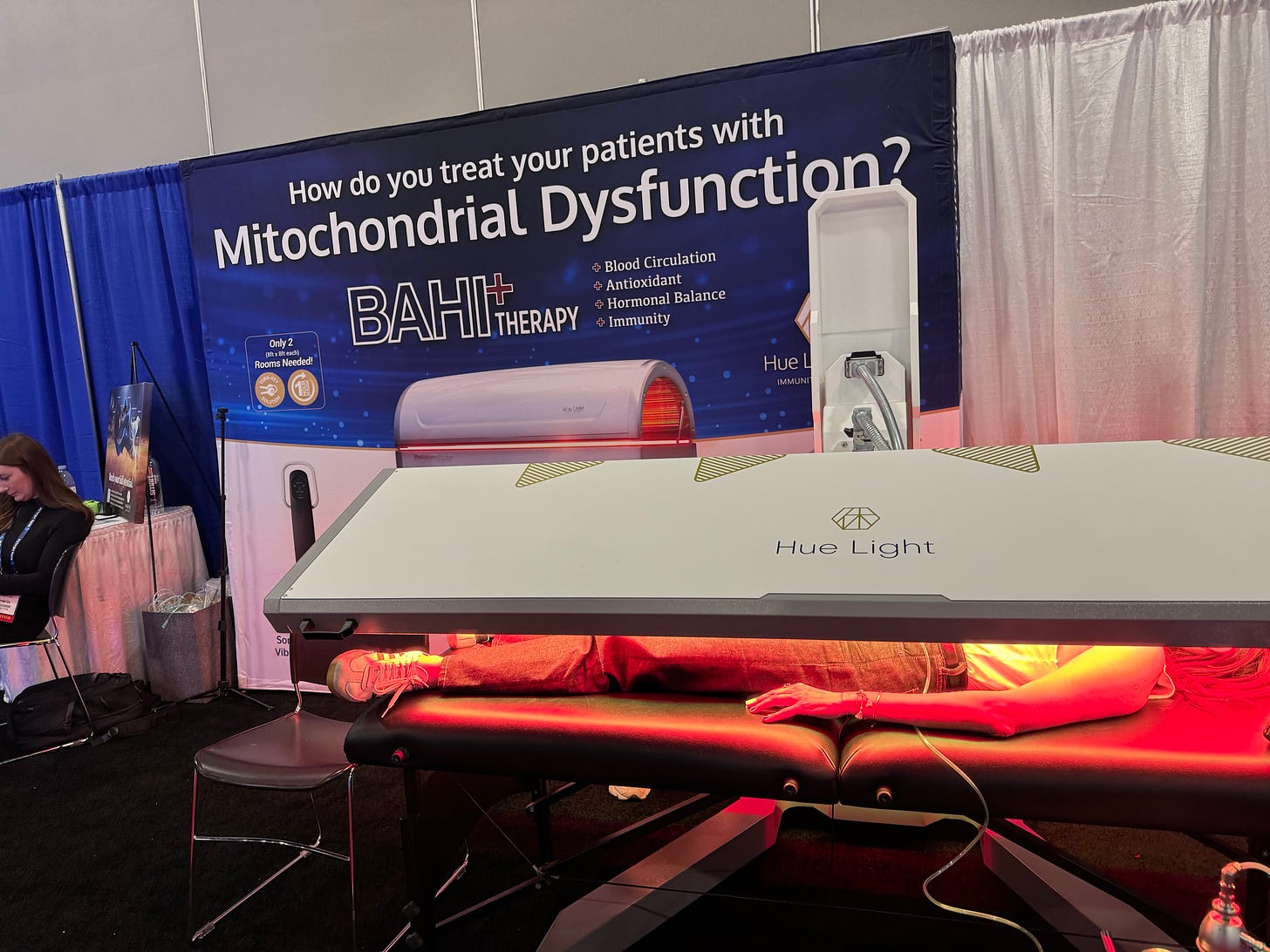
Should I try the samples?
Many companies offer free samples, such as ”G.I. Detox+” from Biocidin ($34/bottle). Supposedly it assists in “mop up” of microbial and biofilm components. Another company, Metabolic Maintenance sells “science-based formulas for optimal wellness” and they were offering free samples.
But do I really want to take these pills? I’m all for experimentation but is it really a good idea to ingest something you got for free at a longevity conference? (tldr; no)
A good personal scientist is open-minded and skeptical, so I should end my Longevity Fest notes with a reminder that most of these products, frankly, seem like BS to me but hey, I’m not going to dismiss anything out of hand. I think it’s wonderful that these vendors are allowed to experiment and try new ideas.
When you hear calls for stricter regulations to “protect” people, remember that tougher FDA rules come at the cost of innovation. U-Chicago economist Casey Mulligan and others who’ve studied the issue note that we’ve have many more, potentially revolutionary treatments for disease if the regulations were rolled back to the 1950s. Obviously, there are downsides; poorly-studied drugs can cause great harm. But when you or a loved one suffers from a chronic or terminal condition, would you rather live in a world where potential treatments are not available at all? Or would you rather be free to use your own personal science to decide what to try?
Personal Science Links of Interest
I like Mike Kaeberlein’s Optispan podcasts, which are always concise and thorough, usually less than 30 minutes (15 minutes if you listen, as I do, at 2x speed). This week’s episode is a walk-through his personal experience doing a full-body MRI scan. He did his through Ezra for about $2500 and said it was worthwhile and that he’d do it again. (2 1/2 out of 5 stars, he says, mainly because of glitches in customer experience). He warns against the Blueprint $6000 “offer” you might see elsewhere, which is wildly overpriced (you can get the brain analysis of an existing MRI for free from Brainkey).
Did you throw away all your black spatulas after reading they are full of toxins? Turns out, the study that led to the hysteria made a simple math error: the “safe” limit, 60 * 7000 should be 420,000, not the 42,000 they reported in the peer reviewed article in Chemosphere back in October. If you already replaced your kitchenware, then I suppose you can just tell yourself that any level is unsafe, including the 34,700 nanograms per day you’d get from your old spatulas. But if you haven’t replaced them yet, you might not want to bother.
About Personal Science
Until the term “scientist” was invented in the 1830s, people who took a systematic approach to understand the world were called philosophers. Natural philosophers were those, like Isaac Newton, who specifically applied themselves to understanding the physical world around us. Now that we have the word “scientist”, what do you call a philosophy that tries to apply rational thinking to every part of daily life? We call it Personal Science, and this newsletter tries to be a brief, weekly summary of the consequences of that approach, hopefully in a way that will be interesting to others who are just as curious as we are.
If you have other topics you’d like to discuss, please let us know.

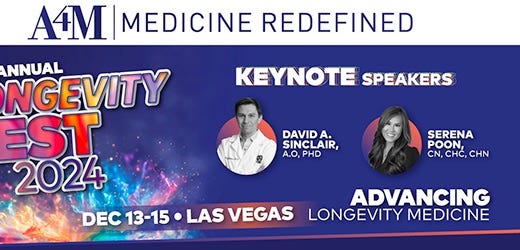

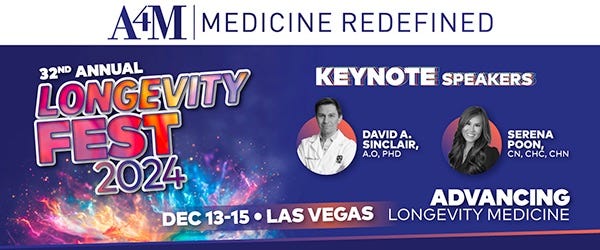
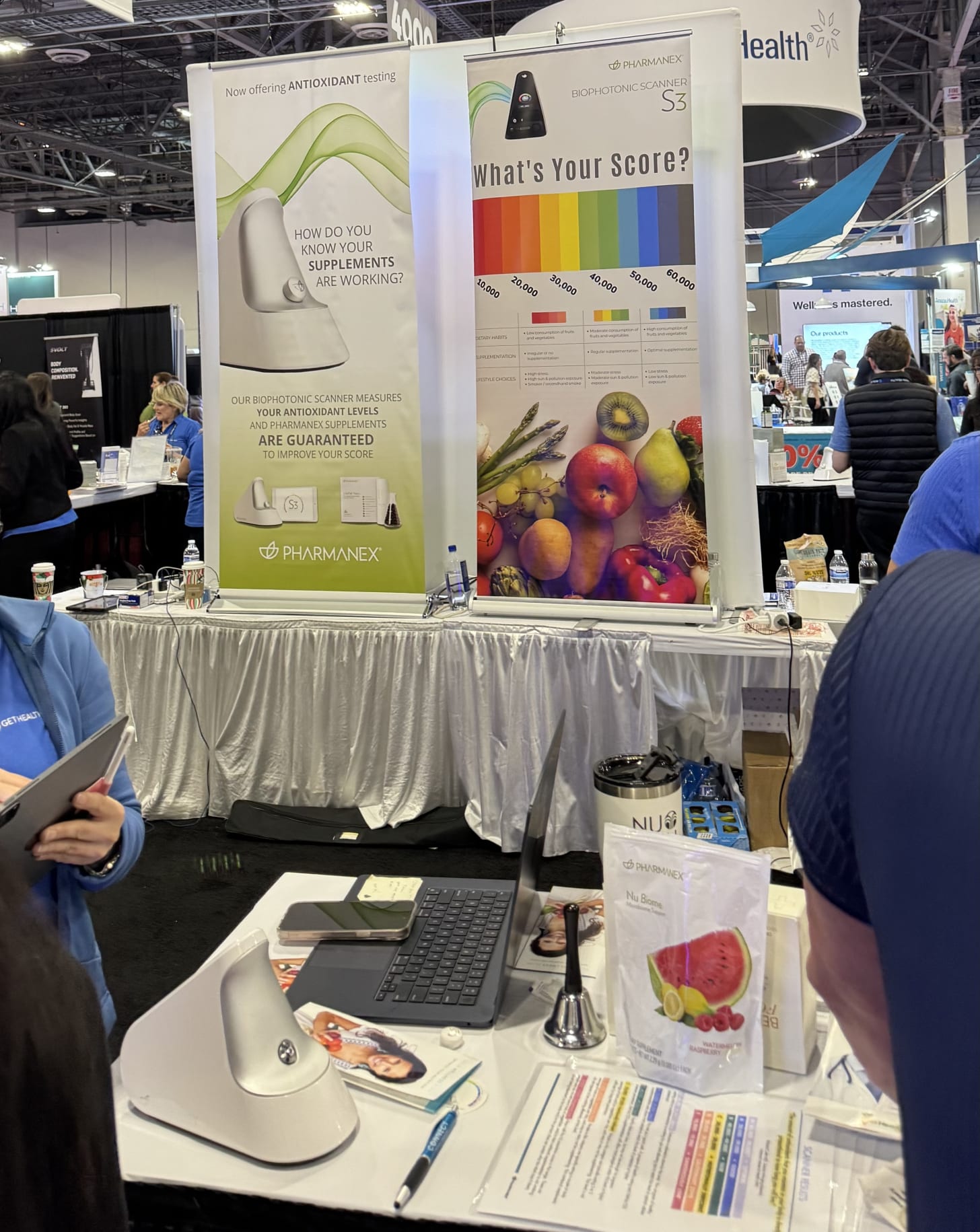
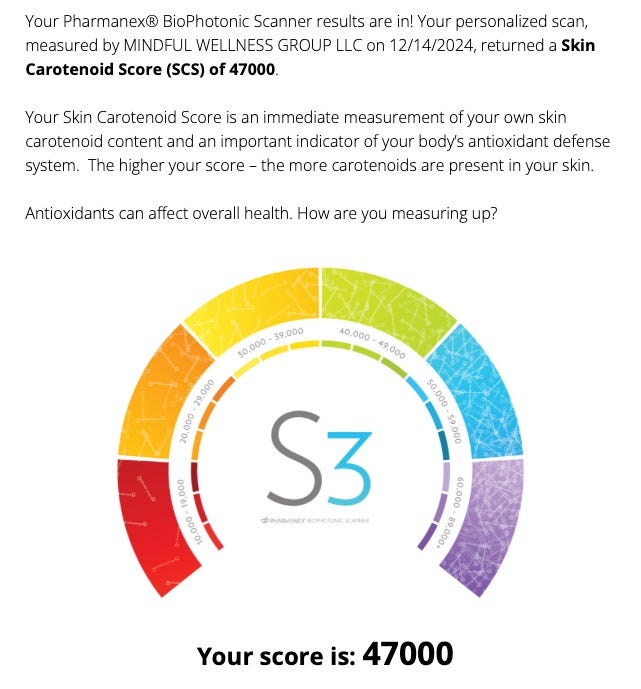
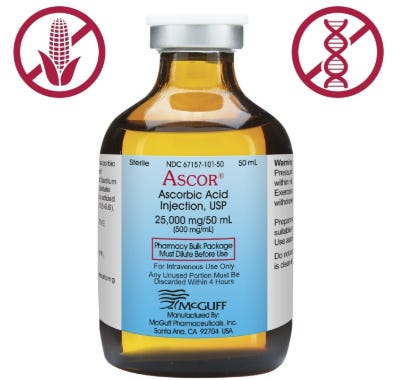
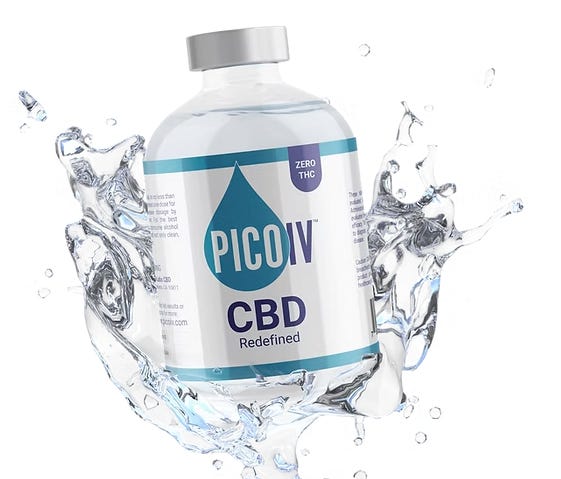
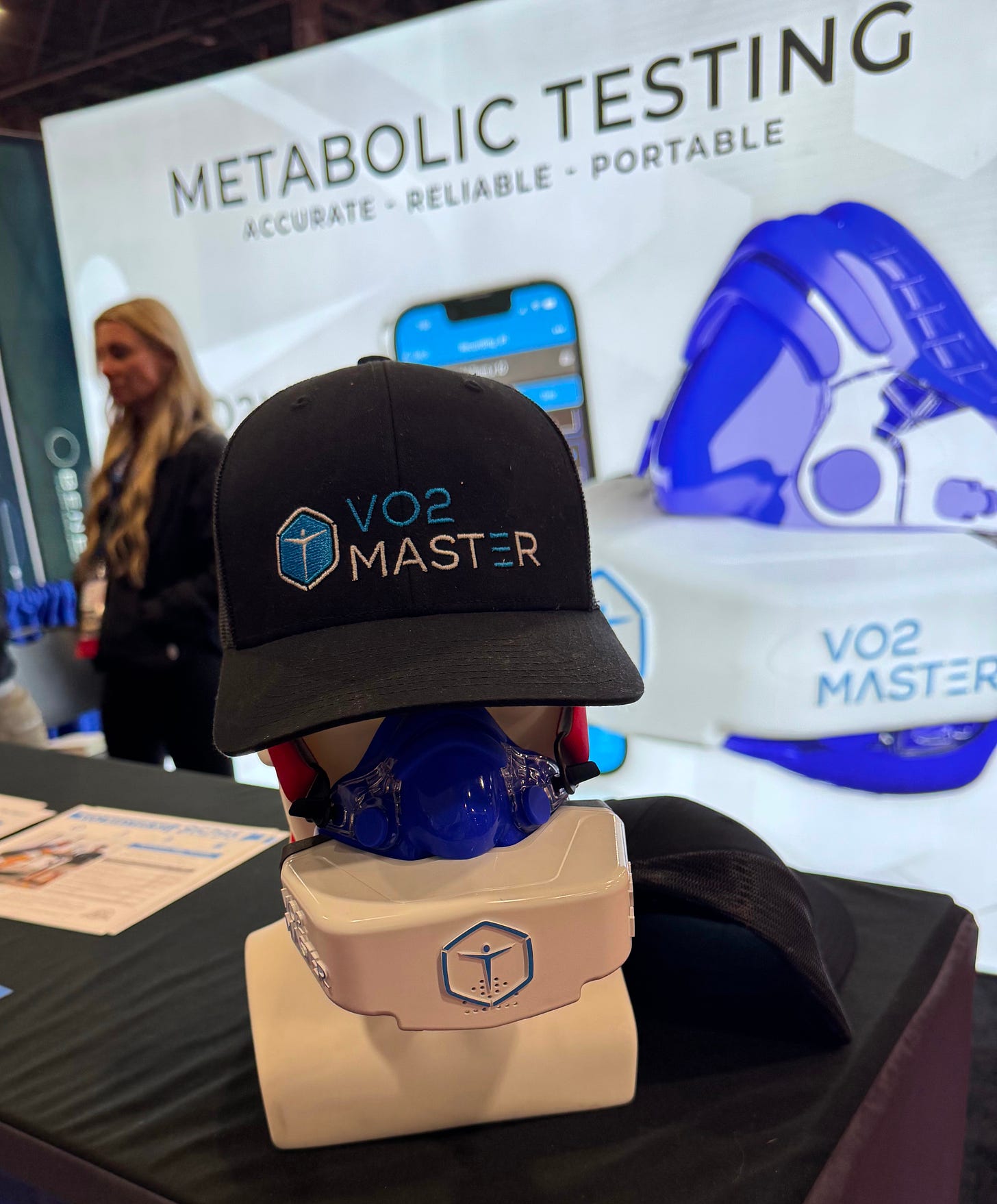
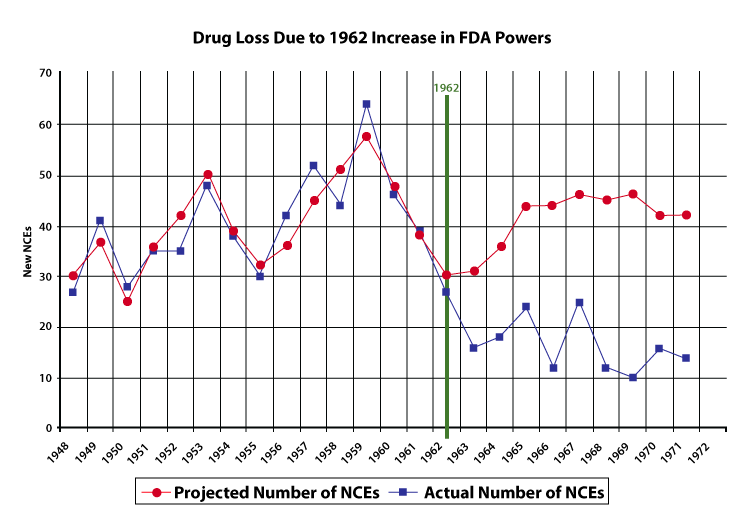




"I think it’s wonderful that these vendors are allowed to experiment and try new ideas."
Maybe, but I wonder how many of those vendors were out-and-out frauds. Speaking of which, how was Dave Asprey's talk? I've listened to a couple of podcasts with him, and I had some reservations about his trustworthiness as a source of information.